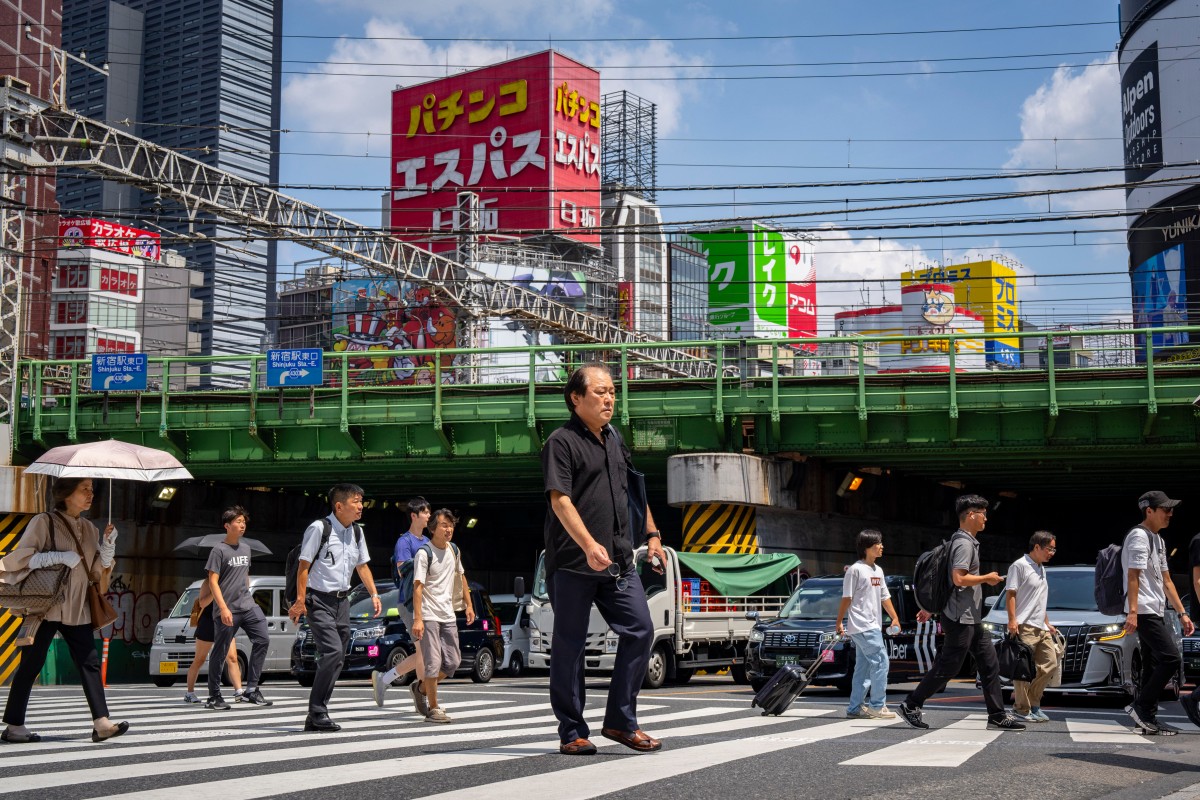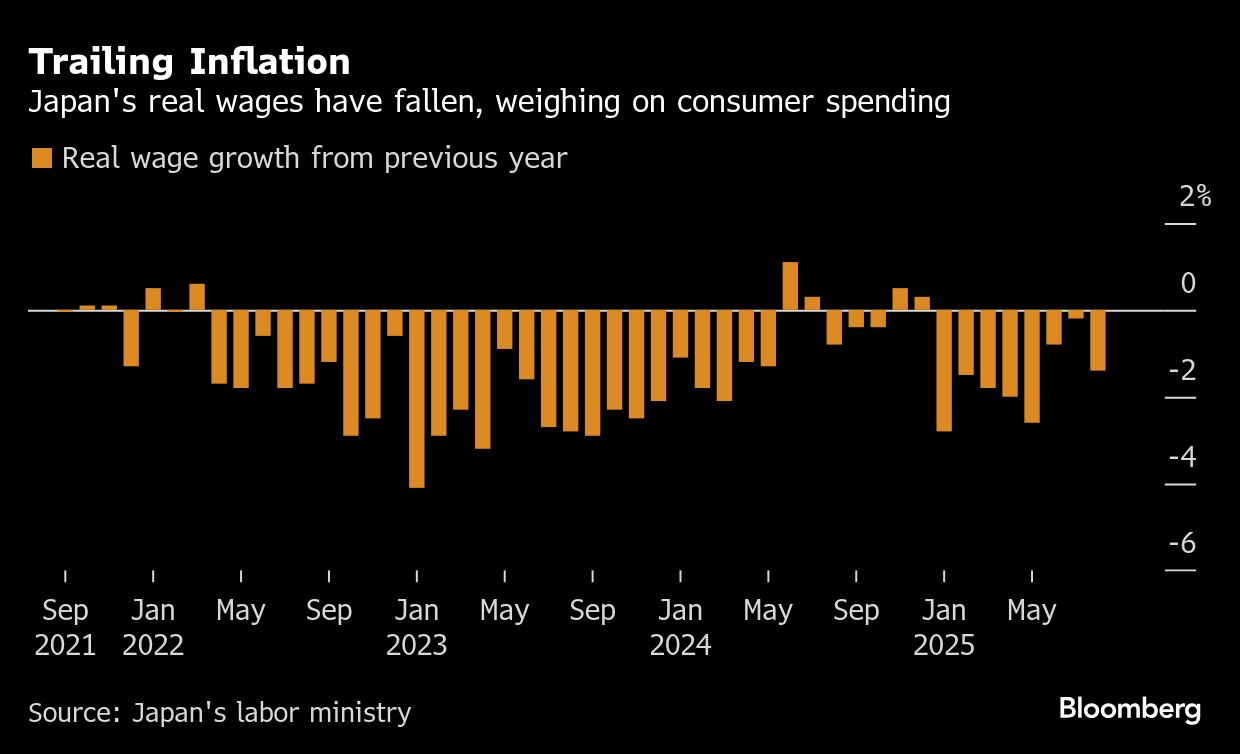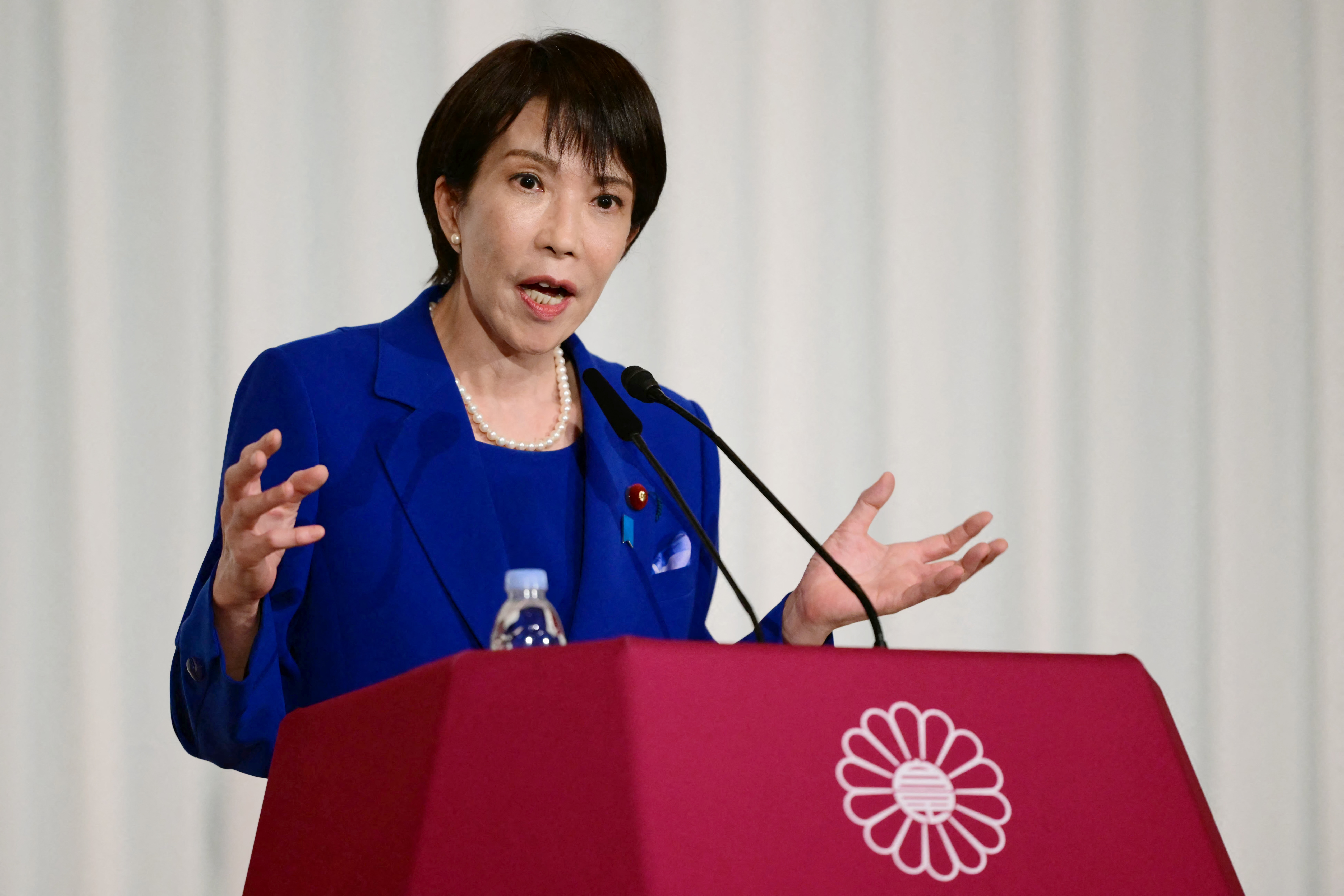
Japan’s wages rose at the slowest pace in three months with real pay extending its falling streak, highlighting a challenge for newly elected ruling party leader Sanae Takaichi who has pledged to address the increase in living costs.
Nominal wages increased 1.5 percent in August from a year earlier, decelerating from 3.4 percent in the previous month, according to a report by the Ministry of Health, Labour and Welfare on Wednesday. That was below economist expectations. Real cash earnings dropped 1.4 percent, marking an eighth month of declines and also coming in weaker than expected.
Economists had forecast nominal gains of 2.7 percent, expecting a slowdown in bonuses after the previous month’s jump. Bonuses fell 10.5 percent as fewer companies distributed additional pay in August, according to the labor ministry. A more stable measure of pay, which avoids sampling issues and excludes bonuses and overtime, climbed 2.4 percent for a second month for regular workers.
While the August data were weaker than expected, the overall trend of moderate wage increases suggests that the Bank of Japan is still on track to keep slowly raising rates. Still, expectations for a rate hike later this month have cooled sharply after Takaichi was elected leader of the ruling party. She is expected to be voted in as prime minister next week, and she has indicated she prefers a more cautious approach from the bank.

“My first impression is that there is little change in the overall picture of wages except bonuses. It’s not strengthening nor weakening,” said Ryosuke Katagi, a market economist at Mizuho Securities Co. “For real wages, it may not clearly rise if this level of wage gains continue. It’s a close call whether it turns positive by the end of this year.”
Traders see a roughly 25 percent chance for the central bank to hike rates when it delivers its next policy decision on Oct 30, plunging from about 68 percent early last week. Known as a strong advocate of monetary easing, Takaichi surprised market participants by winning Saturday’s leadership election for the ruling Liberal Democratic Party.
ALSO READ: Sanae Takaichi set to be Japan's first female premier
The LDP has lost elections primarily by failing to address households’ struggles with the elevated cost of living, as wage growth has failed to catch up while the price of key products like rice soared. Since April 2022, real wages have only registered a monthly gain on four occasions.
Takaichi is expected to compile fresh economic measures to help households cope with inflation, including cutting gasoline and diesel taxes. She’s also talked about raising the tax-free income ceiling further, but has toned down talk about considering a sales tax cut.

Governor Kazuo Ueda has reiterated that the BOJ will be raising rates if it gets confident enough about the realization of its economic outlook. He has underscored the impact of US tariffs on corporate profits and the prospect of wage increases as key points to watch.
“For Takaichi, today’s data supports her argument that the economy isn’t that strong and need accommodative monetary condition,” said Toru Suehiro, chief economist at Daiwa Securities. “But if she stresses that too much, the yen would weaken even further so she has to be careful.”


